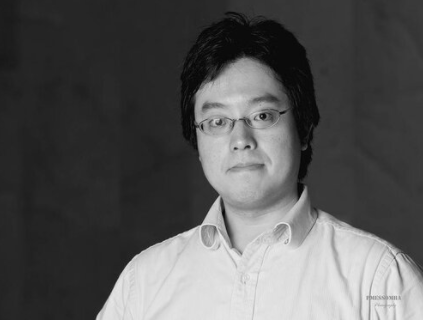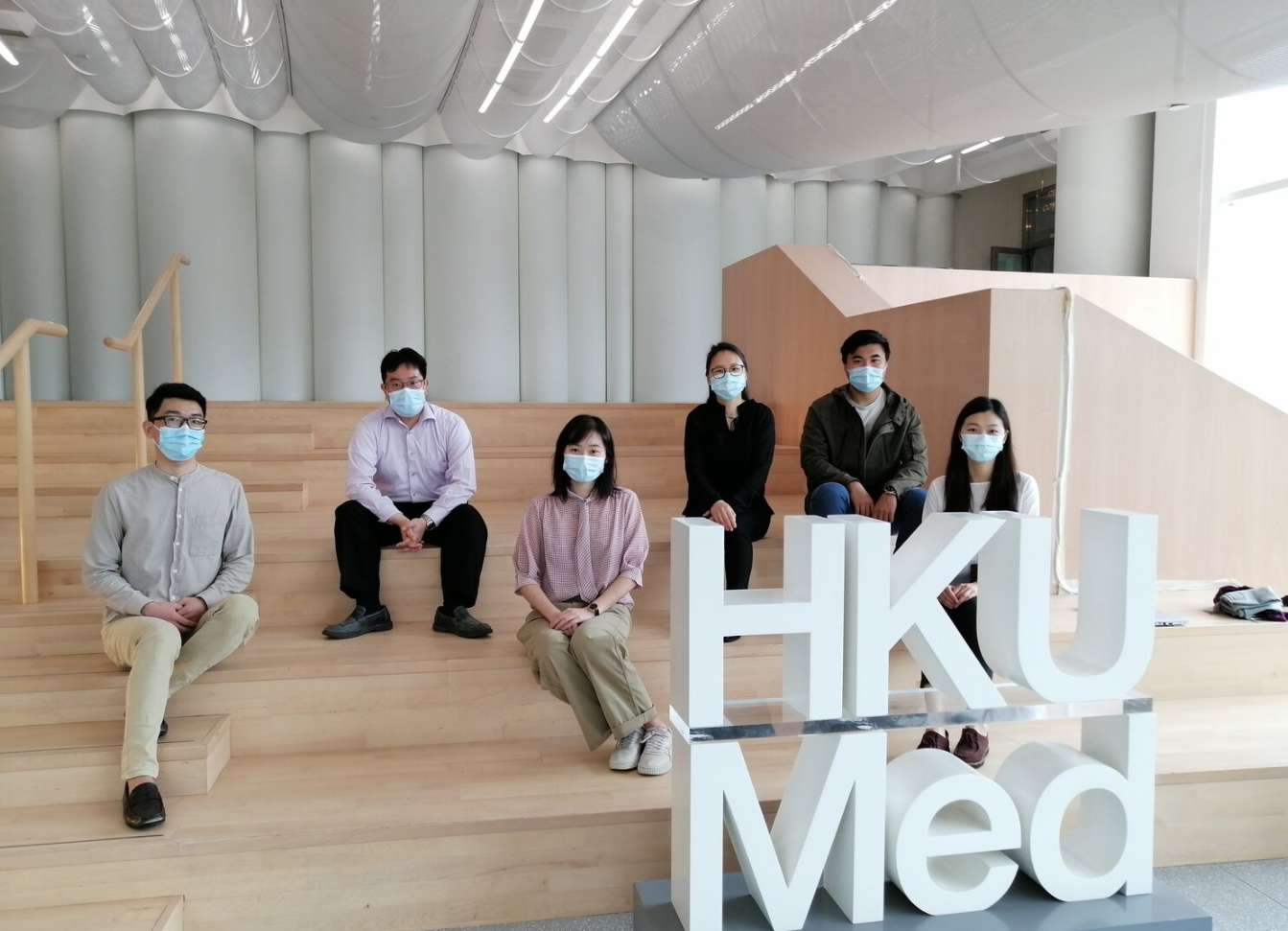New PIs in a global pandemic: a view from Hong Kong
Posted by the Node, on 16 June 2021
Developmental biology is a global science, but Europe and the USA get a lot of the airtime, and it can be hard for those outside these regions to get support and recognition for their work. Added to this, conducting research during the pandemic has been a considerable challenge, especially so for new PIs. But the pandemic has also brought new opportunities and support networks – just check out New PIs in Cell and Developmental Biology, a platform for e-seminars, collaboration and peer support (for more information read our 2020 interview with organiser Salah Elias). One of these new PIs is Rio Sugimura, who established his lab in the University of Hong Kong in 2020. We asked Rio to share some of his experiences of this current time as well as his life and research in four different countries.

Why I got into science
I first dedicated myself to science when I lost my mother to liver cancer. Before this, I had gradually come to be interested in science as I was a first-year medical student in Japan. In my final years of medical school, I rotated in hospital wards. I chose the auto-immune diseases ward first, hoping that cutting-edge immunology had been applied to patients. However, it was quite disappointing: diseases were classified according to rough symptoms, with very heterogeneous groups of patients all classified as having the same disease. Steroids were still being used with no understanding of why they work in some patients whilst make symptoms worse in others. I remember encountering one patient at the terminal phase of systemic sclerosis. We had no clues to cure them, could only watch this progressive illness till the end. At that time, I lost my mother to liver cancer: she had received a blood transfusion during the caesarean of my birth, and contacted the hepatitis C virus that cost her her life. So at that time, I was quite disappointed by modern medicine, and decided to dedicate myself to medical science.
From Osaka to Kansas City to Boston
I did my Ph.D. at the Stowers Institute in Kansas City in the USA. It was a big change in my life. I had just got my MD from my medical school, and all but me became residents: I was the only person to choose the path to M.D./Ph.D., with the Ph.D. part trained in the USA. I moved from one of the busiest cities in the world (Osaka) to a nicely remote and vast landscape. I enjoyed the Kansas life, the BBQ and the camping, and at the time the Stowers Institute was new and growing. Its science was top-notch in each field, and I particularly engaged in stem cell biology. I worked day and night, just the same as my classmates in their residencies. We were on the opposite sides of the globe, but I tried to keep up with the energy and motivation.
I then moved to Harvard Medical School as a postdoc. Boston was the opposite end from Kansas. Scientifically, it was very crowded, and competition and even aggression were encountered daily. I think I was competitive enough in science. New ideas and cutting-edge technologies were everywhere and I felt I could do anything. There you can talk to researchers, editors, and patient advocates, and access all the networks you need for science. I usually went to seminars in random departments of Harvard every day to scavenge sandwiches and pizza (I never cooked at home). The knowledge and directions I heard during the talks have been still navigating my research programs – you can grab collaborators, not only sandwiches!
Home but not home
After my time at Harvard, I moved to Japan and joined the Parthenon of iPSC research, the CiRA in Kyoto. It was a glorious place: every student was optimizing the recipe for factory-size production of iPSCs and their cell therapy products. I found that what we did at Harvard was 5 years behind the recipes there… I sought PI positions inside Japan, but soon realized that the academic system was too foreign to me. The internal pedigree of researchers, although obviously important in other countries, was a critical factor there. I had been told that I lacked strong enough Japanese roots to be a PI at several places I interviewed. A PI who had known me for nearly 10 years kindly advised me that Japan has no place for me. These experiences were enough to convince me that Japan was no longer my country although I was born there.
To Hong Kong via Italy
I flew to Italy during the pandemic with my family, including a 1-year old baby. I was going to establish my lab in Italy during the pandemic. The northern Lombardy region I stayed in was hardest hit by COVID19. I still found that the small town of Pavia was home to our family – people were very supportive. I very much appreciate my director who drove us to the weekly grocery so we could thrive during the lockdown. There I set up my research program based on CAR-T cell technology, which is the basis of our lab now.
So how did I end up in Hong Kong? It was quite simple – I was asked to join the newly established stem cell center at the University of Hong Kong. I joined a zoom chatting with PIs there and was amazed by the conversation, finding shared interests and direction. I saw that I could find my feet there, but it was a tough decision. I was building a life in Italy, but after endless discussions with my family we realized that not only the research but also the international city life and educational opportunities for our children were attractive to us. So, we decided to move.
And here we are in HK, where my lab works on precision medicine for cancer immunotherapy. We want to know: Can we predict the response to immunotherapy in cancer patients? How can we target solid tumors by CAR-T cells? What makes some immune cells target cancers, but others fail to? These are old questions, but we employ cutting-edge technologies to give insights. We work at the intersection of stem cell technology and cell engineering. Our lab has built strong ties with physician-scientists in HK’s biggest teaching hospital nearby our campus. HK has a nearly 8% prevalence of the hepatitis B virus in elderly generations, and liver cancer is one of the deadliest cancers here. Since my experience in losing my mother to liver cancer, I have always dreamed that my research contributes to conquer this disease, and now we can.
Starting a lab during the pandemic
When the pandemic began, I was already in transition to Italy, and had to wait for a few months until the border of the EU opened. The access to the lab in Japan had been limited due to pandemic, and the same happened in Italy. Fortunately, HK did not have such limitations because the pandemic was under control. My move to HK was smooth, as the country did a great job in controlling the pandemic. I do not know if the pandemic affected the laboratory setup that much really, aside from some item ordering was getting slow though, still enough manageable. Luckily, we did not receive any dead cats! I am very lucky to have funding, and our lab is expanding. Most of our students are from mainland China, followed by local HK students. They are really motivated and well-trained.

Although international students and postdocs seem to be elusive, I feel that we have a good pool of candidates actually because of the pandemic. These students would usually go to the USA or Europe, but this pandemic may have forced them to change course. Indeed, we are seeing candidates for students, postdocs, and even PIs, whose CV could land in the USA safely if there was no pandemic, who are trying to come back to HK. I believe that the key to enhancing the strong research environment in HK is to secure those returnees. Our university is recruiting 140 faculty up until 2027, so I believe that it might be a positive impact of the pandemic.
Another big change for us is Zoom. We are not in the USA, not in Europe, and so access to top-notch seminars, conferences, collaborators, and chances to meet with editors had been quite limited. This inequity has big consequences for where you publish, how much funding you get, you recognition and invitations, and where you land as a PI. After leaving Boston, I had always felt outside of the scientific circle, but since the pandemic, Zoom brings us everywhere. Communications regarding collaboration and joint grants overseas have been much easier. Most importantly, while we are being so remote to the ‘center of science’ aforementioned, we can gain much exposure and recognition digitally. It is a big advantage for PIs not in the USA nor Europe. I do hope that societies will keep the Zoom option after the pandemic is over.
In term of the standing of developmental and stem cell biology in HK, we are in transition, increasing a new generation of scientists and mostly recruiting from overseas. I believe that the next 5 years will be crucial to determine the activity and the level of this field in HK. The key is to increase the exposure and recognition of new PIs of HK internationally. The one thing I would request of the global community to better help HK: please think of HK scientists when inviting for key-note talks, seminars and journal editorial boards! I think we deserve some more recognition.
On this note, you can find Rio’s profile in the Node Network, our global directory of developmental biologists, which you can sort by country if you are hoping to geographically diversify the pool of researchers, speakers or reviewers! Find out more here: https://thenode.biologists.com/networkinfo/


 (8 votes)
(8 votes)